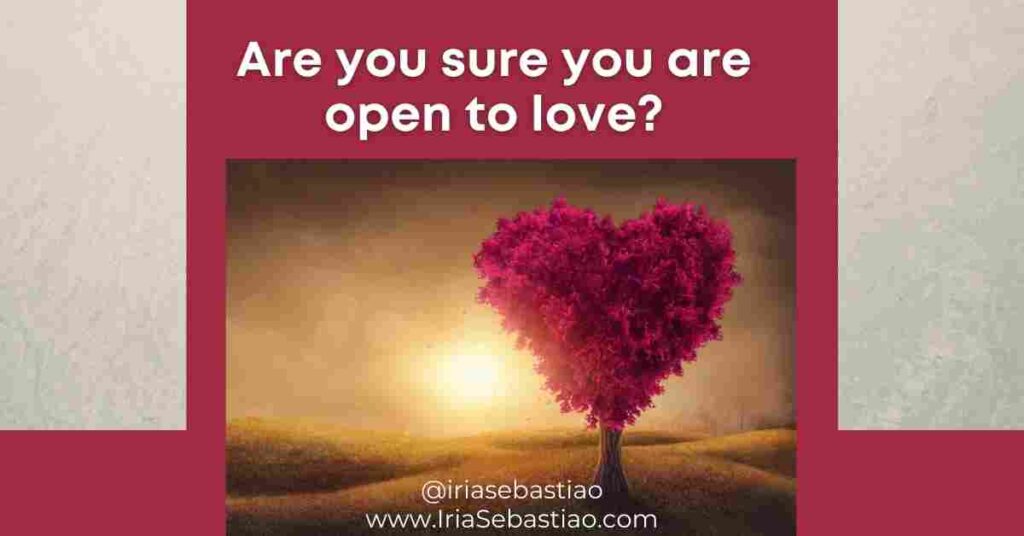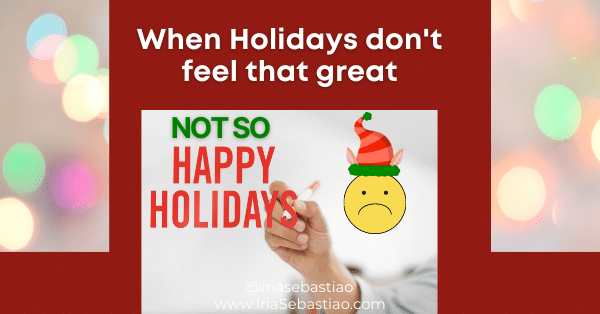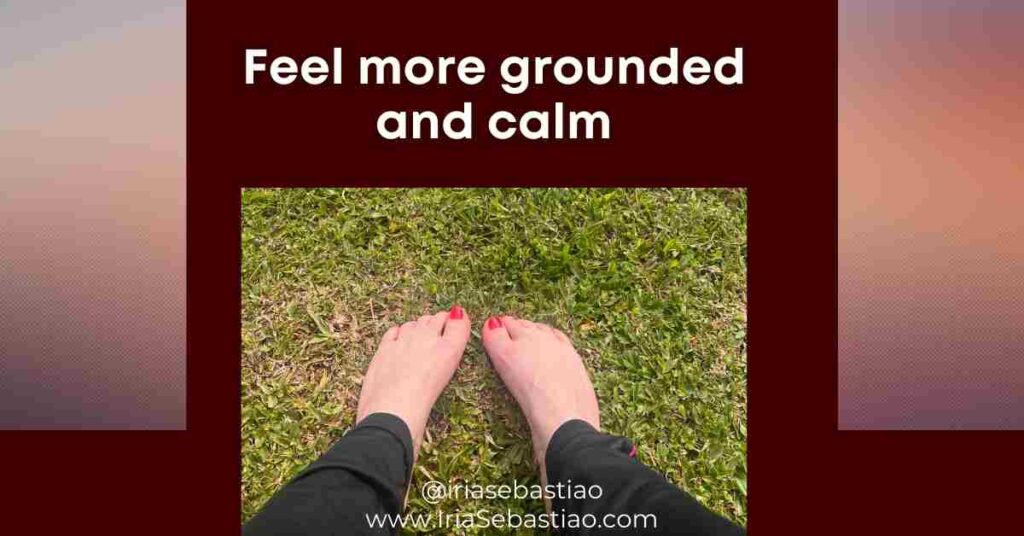 Most people I come across are usually great givers and not so good as receivers. They can go above and beyond for their loved ones, acquaintances, and even strangers. If someone needs help, they are attentive and happy to be there for them. However, these people often have a great challenge identifying and expressing their needs and receiving the same care, love and support.
Most people I come across are usually great givers and not so good as receivers. They can go above and beyond for their loved ones, acquaintances, and even strangers. If someone needs help, they are attentive and happy to be there for them. However, these people often have a great challenge identifying and expressing their needs and receiving the same care, love and support.
A general example is when someone is caring, understanding and supportive when a loved one is going through an illness or having a significant challenge. But, when this person is in a similar situation, they don’t know how to receive the same care, understanding and support. In addition, they can be very harsh on themselves, pushing harder than they probably needed.
When we explore this difficulty with asking for help or receiving care and love, the explanation often has to do with “they will not do it right” or “I don’t want to be a burden for others.”
I suppose you don’t have to have a Master’s in Counseling Psychology to suspect that these beliefs of “not trusting others to do it right” and “not wanting to be a burden” probably reflect childhood experiences.
Let’s see it more deeply:
“I don’t want to be a burden,” or “I don’t want to give too much work to them.”
These underlying beliefs can prevent us from asking for what we want or accepting support and help even when needed. It can be very harmful to our relationships in the long term and also to our health.
These beliefs likely reflect that our parents, or primary caregivers, negatively or even aggressively responded to our needs and requests – especially for love and attention.
It can look like one or both parents were too tired all the time to play or engage in things that felt good for the child. Or the parent(s) could have been aggressive through tone of voice or words or physically rejecting the child’s request for connection.
 “I have to work, cook, clean, (do something else that is more important than being/playing with you) today – and almost every day.”
“I have to work, cook, clean, (do something else that is more important than being/playing with you) today – and almost every day.”
“Don’t you see that I just came from work and am tired! Go play in your room!”
This child may learn things like
- “My needs are not worthy; I am not worthy,”
- “My needs are not important; I am not important,”
- “I am a burden for them.”
“I can’t trust them to do it right,” or “I have to do everything.”
These underlying beliefs can lead us to be people pleasers and overly givers to try to get love and connection. And/or become a “control freak” having to have things in a certain way. Both attitudes can prevent loved ones from expressing their love and being supportive.
When we hold those underlying beliefs of “I can’t trust others to do it right” or “I have to do everything,” this is likely a reflection that our parents, or primary caregivers, could not attend to our needs. And as a result, we learned to take control by resolving our needs.
When reaching out to caregivers becomes unfruitful or hurtful, we can learn that we cannot count on others. So we figure out how to suppress, redirect or resolve our emotions and needs without asking for help.
As a result, we may develop underlying beliefs like “nobody can help me,” “I have to do it alone,” and “I cannot trust others with what is important to me.”
This is probably a better response than the feeling of helplessness. It is a way of gaining control, feeling safer and minimizing anger and disappointment toward the caregivers.
“I take responsibility and control over what I want and how to meet my needs.” It’s great for survival, but not very thriving in intimate relationships in the long term.
How it all plays out in adult life
Those beliefs and emotional wounds play out in various areas of life, including in friendships and work, but it’s probably more apparent in intimate relationships as:
- Not being able to recognize and/or voice your needs with clarity – probably because you are not used to expressing them or expecting them to be met.
- Not identifying your needs as valid, important and worthy of being expressed and met.
- Becoming a people pleaser.
- Not knowing how to set healthy boundaries.
- Having “controlling issues,” wanting things to be in your way to maintain a sense of control and safety.
- Having a hard time trusting others or feeling safe in an intimate relationship.
How it hurts the relationships
 We all have emotional wounds playing out in our relationships. And, if we don’t look into our hurtful or defensive behaviors, which are likely a result of those wounds, we will perpetuate those wounds and behaviors. We will probably create a ground for anger, disappointment and resentment toward each other – reflecting the unresolved emotions toward our parents.
We all have emotional wounds playing out in our relationships. And, if we don’t look into our hurtful or defensive behaviors, which are likely a result of those wounds, we will perpetuate those wounds and behaviors. We will probably create a ground for anger, disappointment and resentment toward each other – reflecting the unresolved emotions toward our parents.
For example, one partner feels their needs are not met and is resenting it. But, it may be the result of this partner not expressing their needs with clarity because they expect the other to guess it, or they haven’t expressed the more profound importance of that request. As a result, the partner doesn’t have the opportunity to meet the other’s needs simply because s/he is unaware of it. [Can you see how anger and resentment can grow here?]
Another example is someone who may be controlling or unintentionally rejecting someone’s expression of love because they are not used to seeing or receiving it in that way. For example, let’s say that one person grew up watching parents being distant or passive-aggressive, and there was no or rare expression of romance. Then, this person enters a relationship where the other partner likes expressing love through notes, gifts and doing things that make the other person happy. But, the receiver may not know how to receive or doesn’t know how to show appreciation for those actions because it feels unfamiliar or uncomfortable.
How to move toward the healing
 Various scenarios of miscommunication or difficulty being receptive to expressions of love in adulthood probably reflect the primary parent-child relationship. However, these difficulties can also be an opportunity for healing and constructing a more loving and safe connection with oneself and in an intimate relationship.
Various scenarios of miscommunication or difficulty being receptive to expressions of love in adulthood probably reflect the primary parent-child relationship. However, these difficulties can also be an opportunity for healing and constructing a more loving and safe connection with oneself and in an intimate relationship.
There is no formula or a “five-step process” to make healing and a sense of safety in a relationship magically happen, but I will bring five aspects that can be more conducive to healing:
1 – Self-compassion: I would say that an essential ingredient is self-compassion. There are constant steps forward and backward in the journey. There are uncomfortable emotions and possibly a lot of pain to overcome to move toward deep healing. So that is why self-compassion is a fundamental element throughout this process.
2 – Awareness and personal responsibility: Awareness and the willingness to look into yourself, your behaviors and how they affect others and your relationship can be the base toward better relationships – and healing. It also requires the willingness to take the responsibility that belongs to you and do your best to improve.
3 – Identifying and expressing needs: The continuous, uncomfortable exercise of being brave to look into and express your needs – at the risk of not knowing how to say them reasonably, not being understood, or not having them met as desired. However, it is a constant exercise of being more clear with oneself and expressing it to others.
4 – Self-regulation: The exercise of self-regulating, navigating difficult emotions, engaging in important and difficult conversations and also setting healthy boundaries. This is key to creating a safe relationship for oneself and each other. The help of a trauma-informed life coach or therapist can make a significant difference in this area!
5 – Being open to love and being loved: Without openness, how can we create space to develop the love and intimacy that we long for? How can we receive love if we are not receptive to what our loved one offers? How can we give our best if we hold our love back because of the fear of rejection?
This journey toward more profound and intimate love isn’t easy. It can be messy, full of meanders and hurting layers for each person. But also, it can be full of healing and beauty if there is a commitment towards one another and to help each other feel safer in expressing and receiving love.
If that is an area in which you are seeking expansion, request an appointment, and let’s explore a direction that can be supportive for you at this time. The first conversation is free – for now.
Back to you
I hope this article makes you more aware of the times you may be pushing away expressions of love from your loved ones and that, perhaps, you can also be more open to it.
Also, I hope you can be more explicit in expressing how happy you feel when your loved one allows you to do something for them. It may be what helps them to be better at receiving it too.
Let me know if you resonate with any of this.
If you want to make changes in your life to be more receptive to love and what brings you more wellbeing, request an appointment here.
Meanwhile, be kind to yourself and more open to receiving love.
—
I am Iria Sebastião, MA Spiritual Life Coach. I bring the knowledge and skills of a licensed psychotherapist, life coach and intuitive healer to help you move from feeling lost, stuck or broken heart to creating the life you want.
You request a private appointment here.



